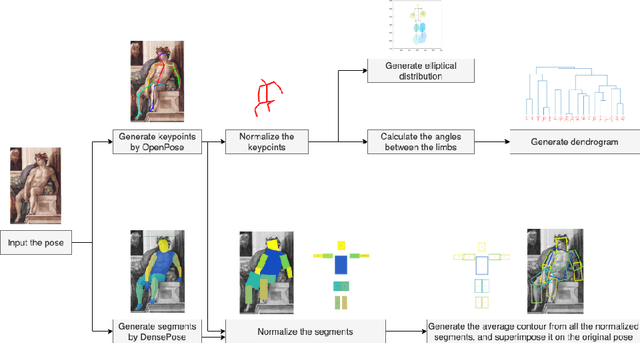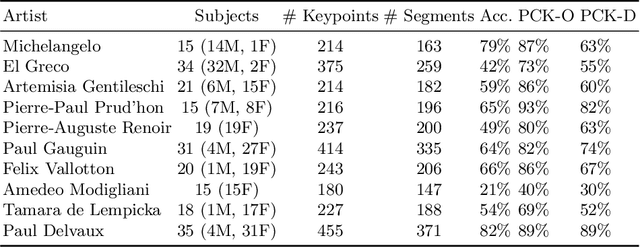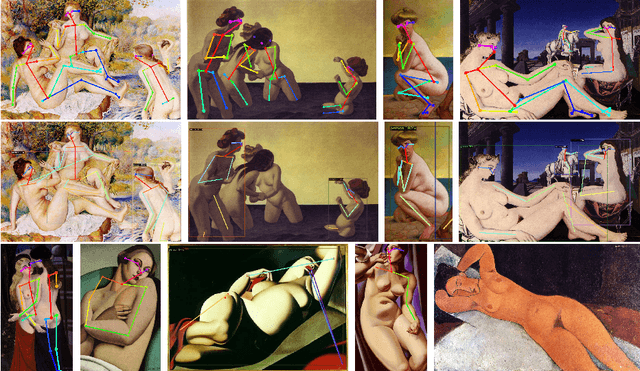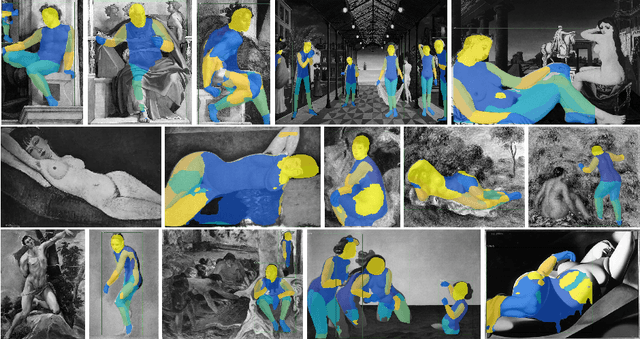Automatic Analysis of Human Body Representations in Western Art
Paper and Code
Oct 17, 2022



The way the human body is depicted in classical and modern paintings is relevant for art historical analyses. Each artist has certain themes and concerns, resulting in different poses being used more heavily than others. In this paper, we propose a computer vision pipeline to analyse human pose and representations in paintings, which can be used for specific artists or periods. Specifically, we combine two pose estimation approaches (OpenPose and DensePose, respectively) and introduce methods to deal with occlusion and perspective issues. For normalisation, we map the detected poses and contours to Leonardo da Vinci's Vitruvian Man, the classical depiction of body proportions. We propose a visualisation approach for illustrating the articulation of joints in a set of paintings. Combined with a hierarchical clustering of poses, our approach reveals common and uncommon poses used by artists. Our approach improves over purely skeleton based analyses of human body in paintings.
 Add to Chrome
Add to Chrome Add to Firefox
Add to Firefox Add to Edge
Add to Edge